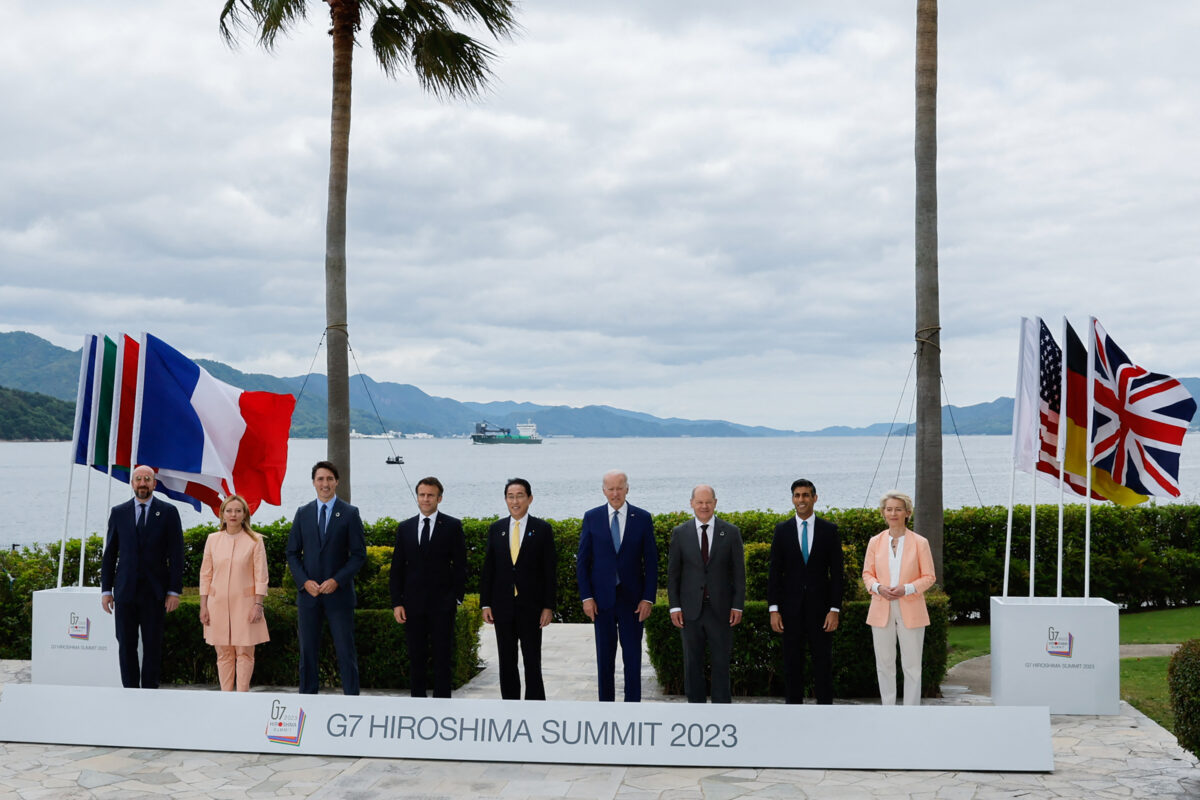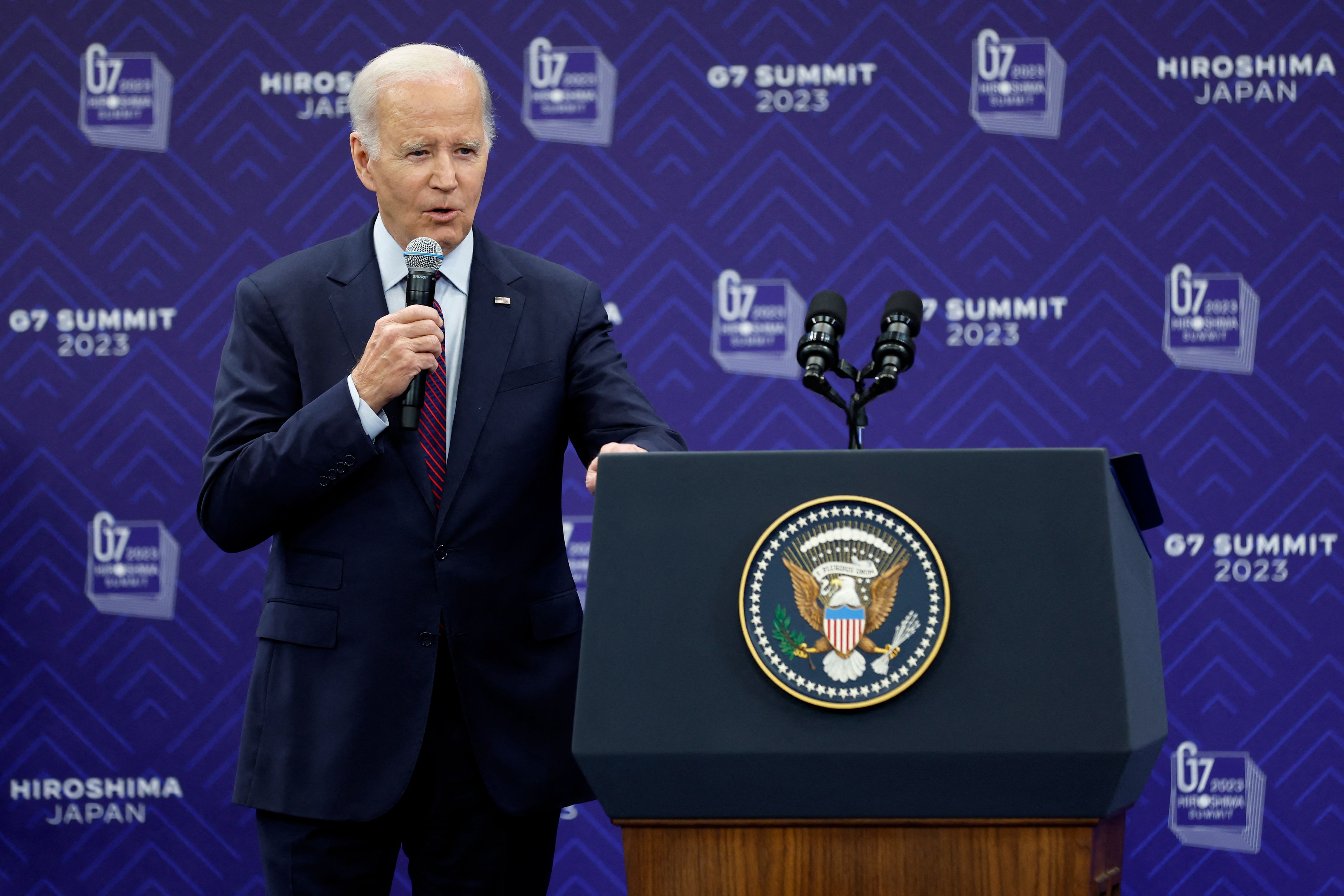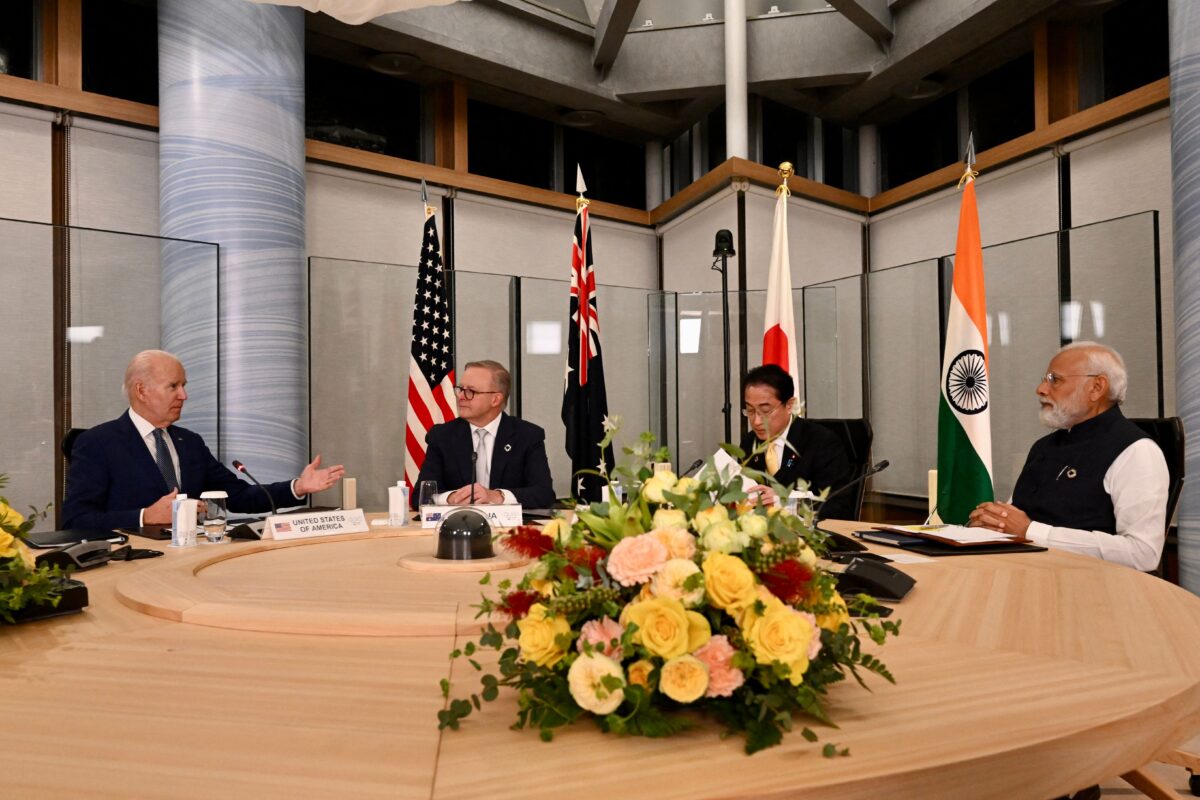Information Evaluation
The lesson of Russia’s battle in Ukraine has compelled the Group of Seven (G-7) international locations to confront Beijing head-on this yr, and the unified assertion from the Hiroshima summit represents a giant step that, based on some specialists, was “unthinkable” two years in the past.
The large query, although, is whether or not the G-7 international locations can keep united and robust when confronting China, as they’ve pledged—or will they proceed to place industrial pursuits forward of “the rule-based worldwide order” or their core values, corresponding to human rights and democracy?
The forty ninth annual summit of the world’s most superior economies—the USA, Japan, Germany, the UK, France, Italy, and Canada—was held in Hiroshima this yr from Might 19 to 21.
Whereas these summits hardly ever make headlines, this yr’s communiqué, extra sanctions in opposition to Russia, and a separate assertion on China demonstrated that, a minimum of when it comes to messaging, the leaders of the world’s richest democracies are extra united than ever.
China’s dangerous ways that undermine worldwide guidelines and norms have been a major focus of this yr’s summit, as articulated in a brand new particular assertion on financial safety.
The G-7 leaders have said publicly that they see China as an financial bully and that the worldwide neighborhood is not going to put up with Beijing’s “financial coercion.” They warned for the primary time that there will probably be “penalties.”
“We’ll work collectively to make sure that makes an attempt to weaponize financial dependencies by forcing G7 members and our companions, together with small economies, to conform and conform will fail and face penalties,” the assertion reads.
The G-7 assertion on China, based on Bonnie Glaser, director of the Asia Program on the German Marshall Fund of the USA, was “fairly strong.”
Whereas the particular assertion made no point out of China, it was made clear through the summit that it was all about China. And within the summit’s communiqué, the G-7 leaders made their positions clear, condemning Beijing’s navy exercise within the East and South China Seas and human rights violations in Tibet and Xinjiang.
The way in which the G-7 international locations have addressed China collectively, based on a report by the specialists of the Atlantic Council, was “unthinkable” two years in the past.
Japanese Prime Minister Fumio Kishida made countering China’s financial coercion a high aim, and through the summit, the leaders introduced the launch of a brand new “Coordination Platform on Financial Coercion.”
This new platform is especially noteworthy, based on Stephen Ezell, vice chairman of worldwide innovation coverage on the Data Expertise and Innovation Basis (ITIF), a Washington-based know-how suppose tank, as a result of it “reveals that G-7 international locations are keen to coordinate to collectively come to at least one one other’s protection within the face of Chinese language financial coercion,” he instructed The Epoch Occasions.
China’s efforts to make use of its rising financial may to affect governments all through the world have elevated in recent times.
As an illustration, after Australia known as for an impartial investigation into the origins of COVID-19 in April 2020, the Chinese language communist regime imposed sanctions on roughly a dozen Australian items, together with wine, for which China was the most important market.
Beijing additionally used coercion in opposition to different international locations, most notably South Korea in 2017 after it put in a U.S. missile protection system, and Lithuania in 2022 in response to that nation’s efforts to extend diplomatic ties with Taiwan.
Whereas G-7 leaders appeared extra united this yr, they nonetheless demonstrated some weak spot by not placing their foot down and imposing sanctions on Beijing, based on Antonio Graceffo, a China financial analyst and creator of “Past the Belt and Highway: China’s World Financial Growth.”
“They even acknowledge that China is supporting the battle in Ukraine however fail to deliver significant sanctions, corresponding to a commerce ban, in opposition to China,” Graceffo, who can be an Epoch Occasions contributor, stated.
“The excellent news is that the G-7 are united,” he famous. “The battle in Ukraine has modified the facility dynamic on the earth, bringing the allies nearer collectively and cementing the U.S. place as chief of the free world.”
‘De-risking’
One other key consequence of the summit was the leaders’ use of the phrase “de-risking,” moderately than “de-coupling” from China, which has change into a brand new official G-7 time period.
“We aren’t decoupling or turning inwards. On the identical time, we acknowledge that financial resilience requires de-risking and diversifying,” the leaders said within the communiqué. “We’ll take steps, individually and collectively, to put money into our personal financial vibrancy. We’ll cut back extreme dependencies in our important provide chains.”
EU Fee President Ursula von der Leyen, who was additionally current on the summit, favored de-risking as a method.
“It’s previous [the] time to decouple,” Graceffo stated, noting that the G-7 leaders are lastly recognizing this.
“This de-risking includes diversification. New funding is just not flowing into China because it did earlier than. Decoupling would imply pulling present corporations out of China. De-risking includes making new investments in India or Vietnam as a substitute. And that’s what is occurring,” Graceffo defined.
As a part of this technique, the leaders agreed to implement export management and outbound funding measures to safeguard delicate applied sciences and construct resilient provide chains.
This de-risking technique conforms to “the October Controls,” a set of restrictions enacted by the U.S. Division of Commerce that stops large producers from delivery high-end chips and inputs to China to guard important applied sciences.
U.S. nationwide safety adviser Jake Sullivan defined these restrictions throughout a press briefing in October final yr, stating that the administration is implementing the so-called “small yard, excessive fence” idea. The aim is to restrict outbound investments in delicate applied sciences, notably those who might give a bonus to opponents.
“The satan is within the definitions and the main points,” Glaser instructed The Epoch Occasions. “For my part, decoupling was by no means on the agenda—the U.S. was not going to cease buying and selling with China,” she stated.
“The query stays: how large are the ‘small yards’ and the way excessive are the fences?”

Ezell agreed, including that the G-7 leaders’ “actions matter greater than phrases.”
“It’s definitely smart to acknowledge that G-7 nations aren’t going to totally decouple from China’s economic system. The built-in nature of worldwide provide chains and markets make that infeasible and undesirable,” he defined.
“However ‘de-risking’ to lower core dependencies and vulnerabilities—particularly these which could possibly be weaponized by China via financial coercion—is exactly the correct step to be taking.”
Combined Messaging
Some criticized the summit’s communiqué for sending conflicting messages by together with references to constructive engagement with Beijing, which didn’t exist a yr in the past.
The leaders said their willingness to ascertain “constructive and steady relations with China.”
Additionally they emphasised that “our coverage approaches will not be designed to hurt China, nor can we search to thwart China’s financial progress and improvement.”
In keeping with Steve Yates, a China professional and former White Home nationwide safety official, the summit despatched out a variety of blended messages.
“It appeared to me like a fundamental kindergarten tutorial on coping with the Chinese language Communist Occasion,” he instructed NTD TV’s “China in Focus.”
Yates stated that the Chinese language regime offers “in actions and energy” and doesn’t “respect the phrase video games,” including that there was no substantial progress at this yr’s summit due to blended messaging.
There are nonetheless G-7 nations corresponding to France and Germany that chase financial alternatives and depend on each China and Russia, whereas “giving lip service to deterrence,” Yates stated.
‘Anti-China Workshop’
On Might 22, China’s overseas ministry slammed the G-7 communiqué and summoned the Japanese ambassador in protest to the summit’s host. The state-backed World Occasions ran an editorial, calling the G-7 summit an “anti-China workshop.”
In keeping with the editorial, the G-7 communiqué demonstrated that Washington “is pushing arduous to weave an anti-China web within the Western world.”
In retaliation, Beijing additionally introduced sanctions in opposition to American chip maker Micron, claiming that its chips pose important safety dangers.
The regime’s response got here after President Joe Biden predicted a “thaw” in relations with China quickly throughout a press convention on the shut of the summit on Might 21.
Biden blamed the current deterioration in relations with China on a “foolish balloon” that flew over the breadth of the USA with spy tools earlier than lastly being shot down by a U.S. fighter jet over the Atlantic ocean.

“Every little thing modified when it comes to speaking to at least one one other. I feel you’re going to see that start to thaw very shortly,” Biden instructed reporters.
Some criticized Biden for sending blended alerts to Beijing and failing to point out energy through the information convention, whereas others applauded his surprising Taiwan assertion.
‘Strategic Readability’?
When questioned about Taiwan through the information convention, the president grabbed the microphone and commenced talking whereas strolling on the rostrum, exuding confidence.
Biden emphasised that Washington has been dedicated to the “one China” coverage, which acknowledges the communist regime as the federal government of China, and wouldn’t count on Taiwan to declare independence by itself.
“However within the meantime,” he stated, “we’re going to proceed to place Taiwan ready that they’ll defend themselves. And there may be clear understanding amongst most of our allies that, in reality, if China have been to behave unilaterally, there could be a response.”
The Chinese language regime, which claims Taiwan as a part of its territory, has intensified navy harassment and threats in opposition to the island in recent times, alarming Western nations. Washington, underneath the Taiwan Relations Act of 1979, is obliged to offer the self-ruled island with the means to defend itself from assault.
Many China hawks in Washington welcomed Biden’s remark as a result of it supplied much-needed strategic readability on the Taiwan concern. Some, although, questioned his assertion, questioning whether or not he was actually referring to a navy response and whether or not he really meant what he stated.
Biden has beforehand on a number of events stated that the U.S. navy would assist Taiwan if the Chinese language have been to launch an invasion of the democratically dominated island, departing from the long-standing coverage of “strategic ambiguity,” which is to be intentionally imprecise on what the USA would do within the occasion of an assault. On every event, his officers have walked again on his feedback, saying Washington’s strategy has not modified.
However specialists imagine that Biden intentionally selected his phrases whereas talking about allies, and that almost all G-7 nations had a minimum of agreed to not sit again and watch if China invaded Taiwan.
Biden’s assertion signifies that “there may be an settlement on the bottom frequent denominator, however no settlement on what these responses could be,” Glaser stated.
As Taiwan is a important hub within the world semiconductor provide chain, G-7 governments acknowledge {that a} Chinese language navy takeover would trigger extreme provide disruptions in lots of industries that rely closely on Taiwanese chips.
Rupert Hammond-Chambers, a Taiwan professional and president of the U.S.-Taiwan Enterprise Council, believes Biden’s message is vital as a result of it clarifies his stance on the problem as soon as once more.
“It’s the fourth time he’s performed it, which is so fascinating,” he instructed The Epoch Occasions. “He continues to deliver strategic readability to this concern, when even hawkish presidents earlier than him had been reluctant to be so clear in regards to the American intent.”
Hammond-Chambers believes the USA ought to abandon its “strategic ambiguity” stance and ship China a transparent message.
“I feel it’s precisely the place American coverage needs to be.”
Within the G-7 communiqué this yr, the leaders reiterated the significance of “peace and stability throughout the Taiwan Strait” and urged a peaceable decision of cross-Strait points. Additionally they expressed severe concern in regards to the scenario within the East and South China Seas and underlined their sturdy opposition to “any unilateral makes an attempt to alter the established order by pressure or coercion.”

The leaders of the Quad Group—Australia, India, Japan, and the USA—which met on the margins of the summit, additionally gave the same message to Beijing.
“We strongly oppose destabilizing or unilateral actions that search to alter the established order by pressure or coercion,” the group said.
On the Taiwan concern, U.S. allies have progressively begun to undertake the identical language that Washington has used for a few years, Hammond-Chambers stated.
“If, God forbid, China attacked Taiwan,” he continued, “I imagine Japan would battle alongside the USA, and really in all probability the Australians and British as nicely.”
“Because it stands proper now, that coalition is rising,” he stated.
Originally posted 2023-05-28 22:29:35.